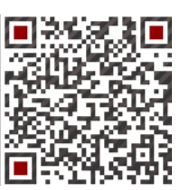What to Expect as Brazil's New Taxation Rules on International Purchases Started?

- system
- 2023-08-07 14:44:33
- 1 min read
- 0 views
Updated: 2023-08-07 15:53:49
Brazil's high import taxes have long plagued international e-commerce sellers and consumers. The topic of import tax has always attracted much attention. New taxation rules developed by the Brazilian government and implemented on August 1st that apply to international purchases of up to $50 have brought this topic to a head.
What are The New Changes?
Brazilian legislation provides that all international purchases that have a legal entity (a company) as the sender are subject to an Import Tax at the rate of 60%. For international shipments by individuals, only purchases up to $50 are exempt from Import Tax.
Now the new rules apply to purchases transported both by Correios (ECT) and by courier companies and do not depend on whether the sender is an individual or legal entity.
If international e-commerce companies such as AliExpress, Shopee, Shein, etc. voluntarily participate in Remessa Conforme, the new Federal Revenue(RFB) compliance program, then import tax will be exempted for purchases up to $50.
However, the company itself must pay the Tax on the Circulation of Goods and Services(ICMS in Brazil), a state tax with a unified national rate of 17%. Purchases above $50 will be taxed both 60% Import Tax and 17% ICMS.
The Ministry of Finance also points out that the processes for product delivery will be streamlined for companies that join the program. Because Import declaration and the payment of taxes will be made before the arrival of the plane with the products.
(Source: Compras internacionais de US$ 50: entenda o que muda para o consumidor com as novas regras)
How Do Companies and Consumers React to The New Rules?
The implementation of the new regulations requires the cooperation of e-commerce companies and has certain technical difficulties, so they were not immediately complied with.
AliExpress and Shein will comply with Remessa Conforme.
Shein and AliExpress announced that they are preparing to comply with the Remessa Conforme program of Federal Revenue.
In a statement, Shein said it has been working since March to implement the necessary changes and fully comply with the program.
And AliExpress expressed optimism regarding Remessa Conforme and believes the move will bring more transparency and efficiency to the international e-commerce ecosystem in Brazil.
Amazon said it has no comment at this time, and Shopee has yet to respond.
Consumers are expected to face higher prices.
AliExpress joining the compliance program means an increase in its operating costs, so it is expected that part of the tax will be included in the price of its products and ultimately borne by consumers.
Previously, according to the old regulations, import taxes should be levied on purchases of up to $50 from e-commerce platforms. The new rules seem a beneficial move that would reduce the 60% tax to 17% and improve the delivery efficiency of products.
Since the inspections of the previous tax collection were sampling, a large number of packages were exempted. Some consumers who had enjoyed the exemption believed that the new regulations would lead to higher prices on e-commerce platforms and make them pay more when purchasing. And the combined tax rate for purchases over $50 will be as high as 92.8%!
92.8% is an effective tax value on the CIF value(product value+international freight) to be paid on goods: [CIF x (1+60%)] / (100%-17%) = CIF x (1+92.8%)
What Challenges Dropshipping Businesses are Facing?
In practice, as the government instituted the program, the Federal Revenue has imposed stricter inspections on shipments arriving in the country. However, if e-commerce companies still do not comply with the compliance program, and the old rules still apply, sampling taxation will continue to be random and non-standard. Even inspections will continue to increase, and more packages will be subject to a 60% import tax.
This would be a serious blow to dropshipping as the regulations are more stringent and even if the value of the inspected package is less than $50, it will be charged import tax if it does not meet all other shipping requirements. This has caused many dropshipping sellers to face a decline in profit margins or even losses.
At present, many dropshippers hope that AliExpress can comply with the program as soon as possible to simplify operations, which is the only solution. This also helps relieve the pressure of a large number of packages being inspected and taxed, so that packages from dropshipping agents will not be affected.
If AliExpress eventually complies with the program, it will be required to inform its consumers of the origin of the products and include the sender's company's brand and name on the package. (Source: INSTRUÇÃO NORMATIVA RFB Nº 2.146, DE 29 DE JUNHO DE 2023)
For those who are dropshipping with AliExpress suppliers, in addition to facing higher sourcing costs, the final customers will also be informed that the package comes from AliExpress, which is contrary to the principle of blind dropshipping.
So, if you are dropshipping from China, it can be a better choice to work with a dropshipping agent to ship orders without any suppliers' information on the package.
There are still many uncertainties in the future and we are still watching. In addition to international e-commerce companies such as AliExpress, will other types of e-commerce companies join the compliance plan? Is it possible for the dropshipping business to enjoy faster and more economical customs treatment brought by the compliance program? Leave your opinion in the comment!
Latest Posts
Ready to get started?
It only takes a few minutes























Leave a comment